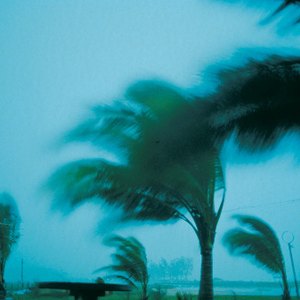
Windstorms and hurricanes pose a significant problem to property insurance companies operating in Florida. Since the 2004 and 2005 hurricane seasons, which brought unexpected devastation to the state, insurance rates have been climbing and insurance companies have been pulling out. The resulting legislation has left a number of residents confused about what is available to them and what their requirements are.
The Law
Florida law requires property insurers to offer hurricane windstorm coverage on standard homeowner's insurance coverage except, in some cases, in high-risk areas of the state. This means that insurers must offer windstorm coverage or not offer coverage at all. Therefore, in most cases, if you are looking to buy homeowner's insurance in Florida, you must carry windstorm coverage with it. If you have a mortgage on your home, your lender will require you to have homeowner's insurance.
High-Risk Areas
Florida has designated certain coastal areas throughout the state as high-risk areas, or those more prone to wind and hurricane losses than others. The state legislature capped the number of high-risk areas in 2002, so whatever was determined to be high-risk at that time remains as such at the time of this publication, even though other places may have similar statistical probabilities of storm damage. The law treats these areas differently than the rest of the state.
Citizens Property Insurance Corp.
Residents who live in one of the designated high-risk areas may not be able to secure windstorm coverage, or any coverage at all, even though they are the ones who need it most. For them, and anyone else who cannot secure insurance through the private market, Florida created the Citizens Property Insurance Corp. This is the state's "insurer of last resort," which offers people coverage when they cannot get it elsewhere, at a higher premium than private insurers charge for similar coverage.
Condos
Florida's insurance laws have changed a lot since 2004. As of May 2011, state law requires all condominium unit owners to buy condo insurance. A previous version of the law also required the homeowners' association to buy a policy for you and charge you the premiums if you failed to do so yourself, but that portion of the law was repealed. Because of this law, all condo unit owners in the state are required to have windstorm coverage.
References
- Colorado State University. "Forecast for 2020 Hurricane Activity (as of August 5, 2020)." Accessed Aug, 25, 2020.
- CoreLogic. "2020 Storm Surge Report." Accessed Aug. 25, 2020.
- IRMI. "Storm Surge Insurance Glossary Definition." Accessed Aug. 25, 2020.
- Insurance Information Institute. "Hurricane Season Insurance Guide." Accessed Aug. 25, 2020.
- Insurance Information Institute. "How Much Homeowners Insurance Do I Need?" Accessed Aug. 25, 2020.
- TWIA. "Insurance to Value." Accessed Aug. 25, 2020.
- NAIC. "Hurricane Deductibles." Accessed Aug. 25, 2020.
- FEMA. "Historical Flood Risks and Costs." Accessed Aug. 25, 2020.
- Grange Insurance. "4 Reasons to Add Water Backup Coverage." Accessed Aug. 26, 2020.
- Insurance Information Institute. "Facts + Statistics: Homeowners and Renters Insurance." Accessed Aug 25, 2020.
- TWIA. "Rates." Accessed Aug. 25, 2020.
- TWIA. "Welcome to Hurricane Preparedness." Accessed Aug. 25, 2020.
- FEMA. "Understanding Your Policy Terms." Accessed Aug. 26, 2020.
- Insurance Information Institute. "Background On: Hurricane and Windstorm Deductibles." Accessed Aug. 25, 2020.
Writer Bio
Stephen Hicks has been writing professionally since 2000. He recently published his first novel, "The Seventh Day of Christmas." He spent three years as a licensed life and property/casualty insurance agent in California. Hicks holds a Bachelor of Fine Arts in cinema studies from New York University.

